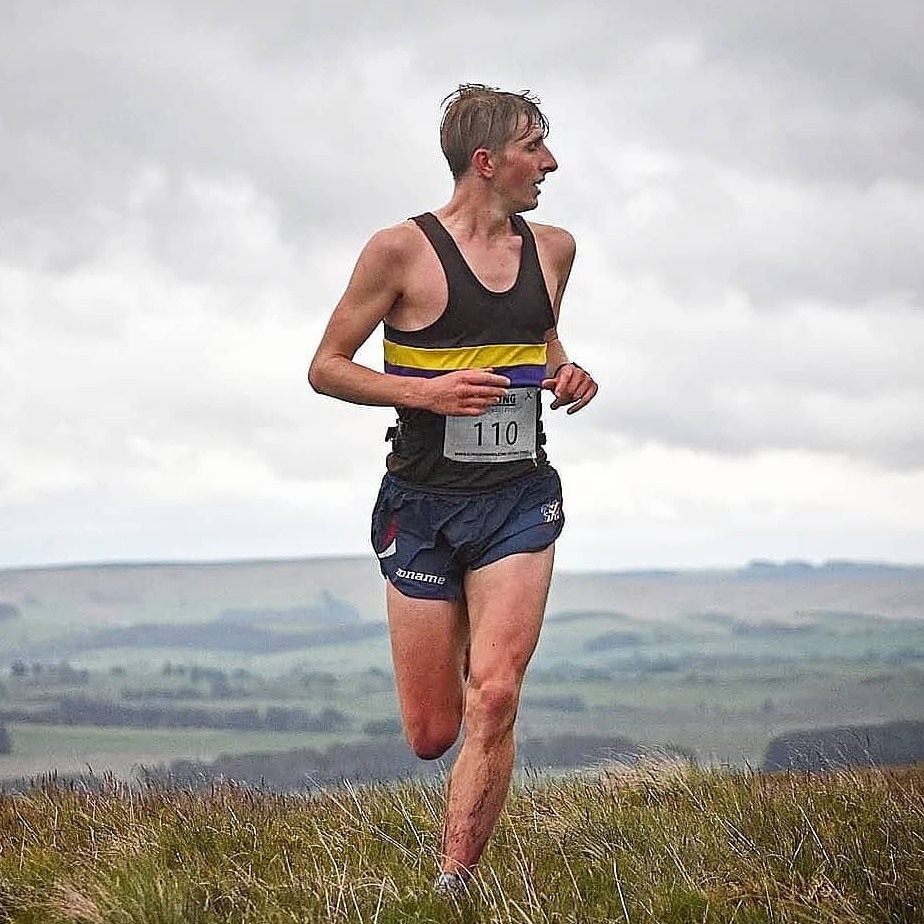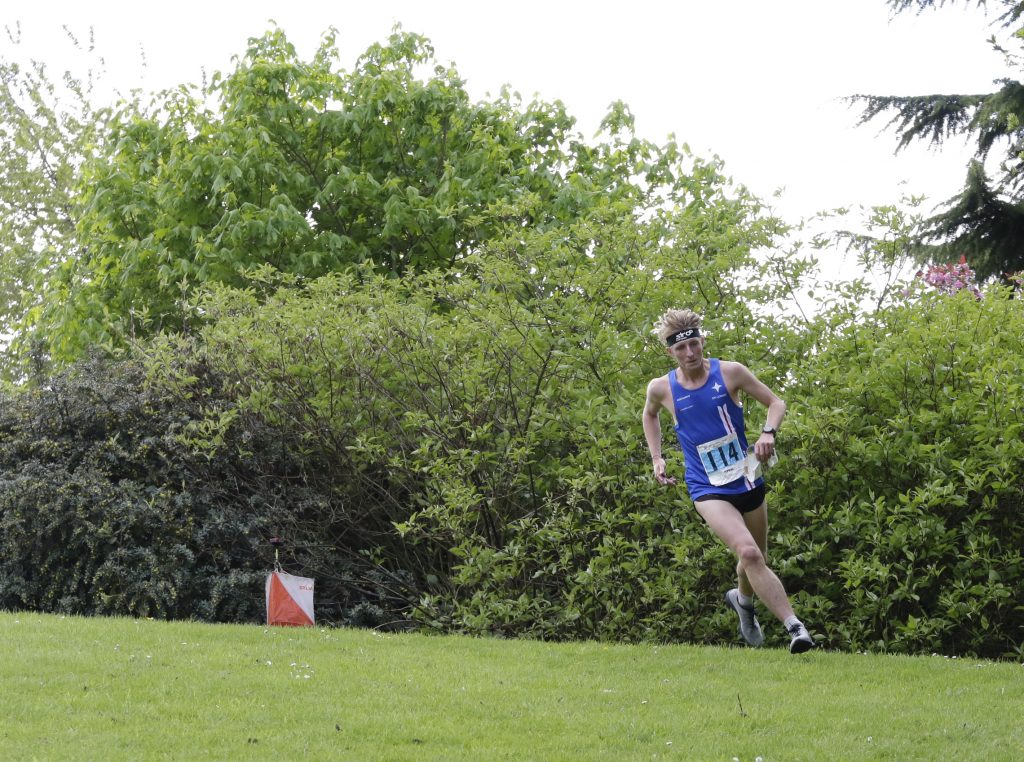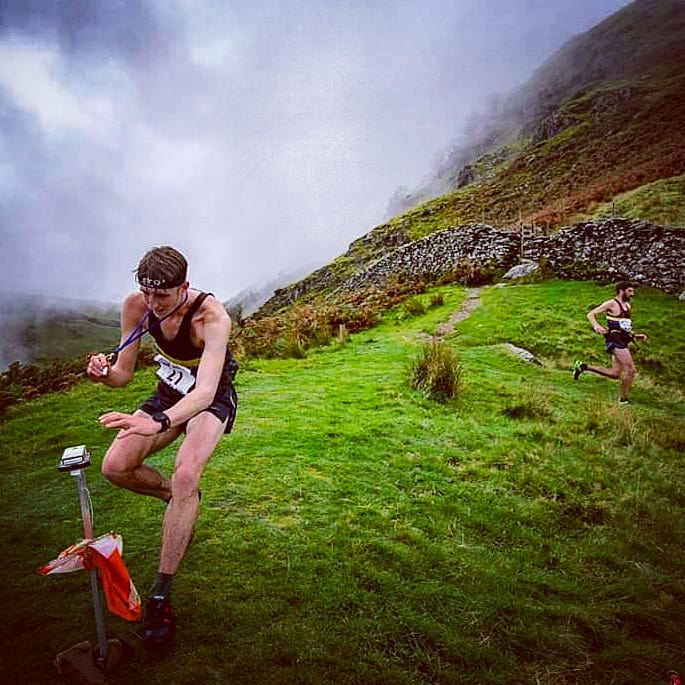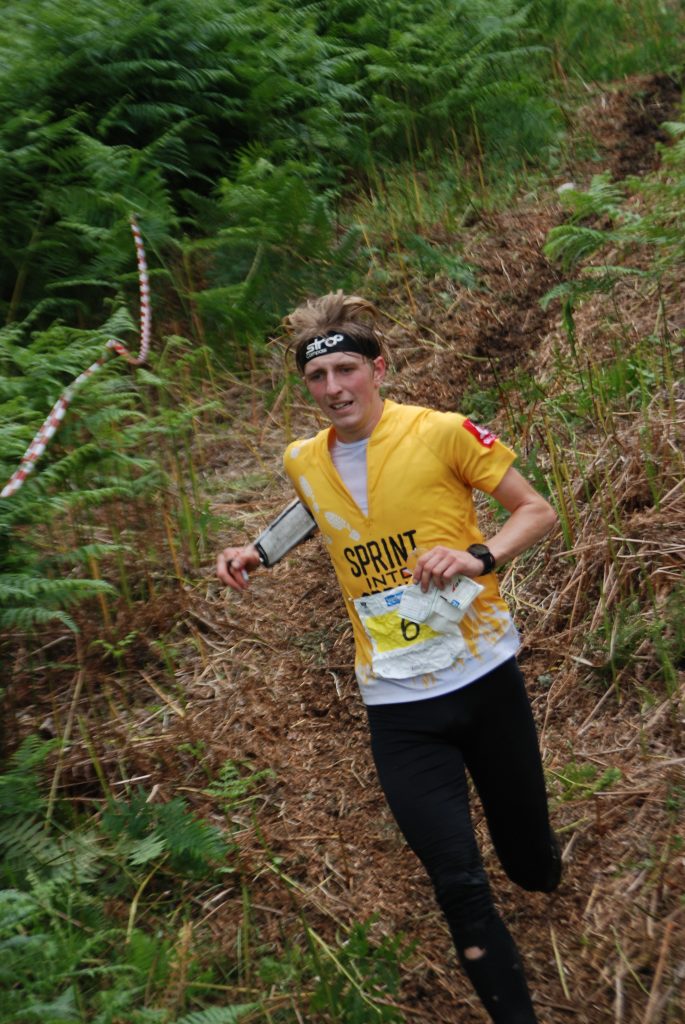This week I’m giving you the longer, unedited version of my recent Q&A with fell runner and orienteerer Nathan Lawson, taken from my monthly newsletter, Letters from the Lake District.
Each month I interview a different person with a strong connection to the Lake District – from artists to runners, writers to photographers.
We dive into everything from how the Lake District has inspired their work or passion to their top places to avoid summer crowds and where to find the best coffee or pint in the national park.
If you would like to sign up for future additions you can sign up here
Tell us a little about yourself and your connection to the Lake District
I’m Nathan Lawson, I’m an orienteer and fell runner currently running for Dark Peak Fell Runners (based in the Peak District) and Octavian Droobers (a West Midlands based orienteering club). I live in Shipley (West Yorkshire) and work as a Waste Water Operations Graduate for Yorkshire Water.
My connection to the Lake District stems back to my childhood, as I’m sure it does for many people, primarily from family holidays spent mostly hiking with my parents and sister.
I grew up in Leicestershire, so coming to the Lake District felt like going to a whole other world! I’m fortunate to have parents who have always been enthusiastic about the outdoors, which is most likely where my own love of the Lakes comes from.
Even before I knew about fell running I remember trying to run up as much of the hill as I could when we were out walking and trying to reach the top ahead of the rest of my family – and probably the same on the way back down!
Share some of your early memories of visiting the Lake District
I think my earliest memory is of walking the Old Man of Coniston with the rest of my family. I can’t be 100% sure, but I think it was the first “proper” fell that I went up. It was quite a bleak day, grey and claggy, but as a kid this made it feel all the more mysterious and epic, especially coming down through the quarries with the mist swirling around them.
Maybe my other obsession with Lord of the Rings at the time may have permeated here too. It’s difficult to tell but I imagine these early walks and adventures form the basis of my fascination with exploring mountains, especially in the Lakes.
Tell us about your running journey (when/why you started) and how the Lake District has shaped your journey in running/orienting
I guess my running journey comes in 3 reasonably distinct phases.
I’ve always run and my Dad has always been a constant influence on this, being a decent runner throughout me growing up and running some pretty cool races like the KIMM (OMM) and some more local races to us in Leicestershire like the Bowline. I used to join him on runs from when I was maybe 10 or 11, nothing crazy, but to me, it was really cool to be “training” with my Dad. He’d tell me to do things like sprint between every other lamp post, not in a serious, pushy Dad way, just a bit of fun.
Like most kids, I raced cross country at school and had some ok success with some county medals, but to be honest, I hated it! I don’t know if it was the atmosphere with a lot of pushy parents and over-competitive kids or if it was boring to me compared to orienteering where I’d just be let loose in a forest or on a hillside.
For as long as I can remember we used to load the car up on a Sunday and drive all over the country to different orienteering events, which had a fantastic community around them and took us to places which I don’t think I would have seen otherwise. I was generally fairly competitive and found it a more rewarding activity because it felt like I owned the process and if I did it right, then the results came from that.

At the time I was also playing football and tennis quite competitively, so balancing all of these sports became a little tricky. A bit of a turning point at this time came when I was 17 and got a bad knee injury playing football the day before I was supposed to fly to Sweden to orienteer for 2 weeks! At this point, I decided that I could try and make a go of orienteering whereas I didn’t think there was much chance of taking football any further.
I had also had my first call up to the GB squad to run the Junior European Cup in Belgium. So from there until heading to university a year later, I began to train in a bit more of a structured way, building some more specific fitness and beginning to focus on some longer-term goals in orienteering, leaving football and other sports behind.
The next year went well but was also a bit inconsistent just by the nature of how life is at that time with school, picking a university, being able to buy beer for the first time, being able to drive and of course, dismal attempts to get girls to like me. That’s not to say that I was a party animal but any stretch, just that it’s quite a tumultuous time which made it difficult to focus on just one aspect. I started at The University of Sheffield in 2015 and this marked a significant change in my running. I knew a lot of ShUOC (the university orienteering and fell running club) members before joining and suddenly I always had someone to run with and exposure to people further along the running line than me that I could draw an awful lot of experience from. It also helps massively at a university where there is scheduled training, intervals on a Tuesday, long-run Wednesday, hills Thursday and some racing or organised training on the weekend, often with weekends away.
My training and racing became more focused and structured, with a really good group of friends all pushing each other to be better. I also first got involved in competitive fell running here for the first time which I instantly loved.
As a result, over the three years I was in Sheffield, I progressed from a keen, but naïve trainer to an experienced trainer and racer with a much better idea of my own abilities and I began achieving results that reflected that, including racing at the Junior World Champs and beginning to see good results in fell races with a 4th overall at the Turner Landscape English Champs race.
These gave me genuine confidence in my abilities and potential, which I carried into the next year. I spent 7 months coaching orienteering in Australia and also getting some good results out there, including 2 national titles.
Unfortunately, I got injured from Jan-Mar 2019, so was a little unsure as to how the 2019 season would go in which I was targeting the Under 23 English Fell Champs.
Fortunately, I moved to Keswick in April to work at the YHA (where I also met and lived with Rebecca, who writes this blog!) and the season went really well, culminating in winning the title I’d coveted all year after battling battle with my good friend Max Wainright all the way to the final race.
At this point, the current stage of my running journey began. I started a masters in Sheffield in 2019 with the intention of pushing for senior GB orienteering selections in 2020. Unfortunately, the pandemic put paid to these but I did manage to train consistently, if not earth-shatteringly throughout. I was working full time as an archaeologist and then tax compliance officer at this time and had some difficulties in my personal life at this time with my partner experiencing significant long-term health issues.
As such, my time and focus for training became more limited through 2020 and into 2021. In a way, this did have a positive effect on my running, despite this being difficult to see at the time, because it meant that every session I did had to have a purpose, allowing me to be more focused in the time that I had.
This resulted in much stronger and more consistent results through 2021 and achieving a childhood dream of racing at the World Championships in the Czech Republic and the World Cup in Sweden. This was more than I had hoped for and was a really welcome reward after some incredibly tough years.
At present, I am preparing for the 2022 season with I think a more sophisticated approach than when I was younger. The emphasis in my running has shifted considerably from being purely performance orientated and quite obsessive to one targeting consistency and longer-term developments.
It has taken me a long time and a lot of mistakes to learn that this makes it significantly easier to enjoy running day today and to have the confidence to know that the odd blip or reshuffling of a training plan or schedule really doesn’t matter as long as the overall process is working and one you believe in.
So, I suppose in summary the three phases could be categorised as naivety, kid in a sweet shop doing everything and anything with all of the associated stress, followed by a now more measured and mature approach to trusting a process and realising the benefits of consistency.
How does fell racing/running in the Lake District differ from other parts of the UK?
Fell racing in the Lakes is definitely unique.
I think there are two reasons for this. The first is the terrain. You can have anything from lovely, runnable, grassy slopes to incredibly steep rocky spines and everything in between. Often races will have elements of all types across this spectrum which means to race well in the Lakes you have to become confident and capable across any terrain. It is also spectacular, there are pockets in the Dales and the Peaks which are similar and obviously Wales and Scotland have equally stunning landscapes. For me though, the Lakes demonstrate a really delicate balance between nature and civilisation. The accessibility of Lakeland fells make them really special because you can get to some incredibly wild places up there and feel genuinely lost in the natural landscape, but within half an hour you can be back in a pub.
Whilst I do acknowledge, and largely agree with many that the Lakes are likely becoming too congested, and I love to be in environments that feel truly remote, like parts of Australia, New Zealand or even Western Scotland, the range of options in the Lakes from small, easily accessible hills to forbidding and sometimes treacherous mountains is quite unique.
The second reason why the Lakes differ is from a racing perspective. I have not had the fortune of hill racing in Scotland, but from what I can see and speaking to friends who do regularly, some of the races seem wild. However, what makes racing in the Lakes different, and arguably better, is the depth of competition. At even smaller midweek races you are likely to have 5 or so runners there who would also be featuring at the pointy end of English and British Champs races. This level of competition gives any race have a heightened level of quality.
There are also so many incredible races and routes, far more than anyone could really fit into one season! I think for me as well, the importance of the history of many of these races cannot be understated.
When you consider some of the records still standing, from Kenny Stuart’s Skiddaw, Ennerdale or Latrigg records, to Billy Blands Borrowdale or even more modern times like Jacob Adkin breaking the Fairfield record last year, it puts into perspective the calibre of runners who have raced over these fells and the stories which have played out on their slopes. For me (and I may be biased as a Cultural Heritage Management graduate), the legacy of these races and the number of exceptional runners who have raced them lends them more gravitas than races in other parts of the UK.
Recommend 2 or 3 of your favourite runs in the Lakes (one around 5-10k and one longer)
My favourite routes in the Lakes are the Fairfield Horseshoe (14.5km +914m) and the Langdale Horseshoe (21.1km +1450m).
As a shorter route, I don’t think you can go far wrong with Loughrigg from Ambleside. (7.5km~ +300m~). It’s quite touristy, but from there you can see so much of the Lakes and it’s so accessible from Ambleside.
Your go-to place for a post run coffee and/or pint in the Lake District.
For a coffee I’d have to say Fellpack in Keswick, really nice coffee and lots of cool fell running paraphernalia on the walls including tonnes of club vests! I also really like their mugs (A quick side note – Fellpack is now just open in the evenings for a restaurant offering but they run The Round which is open for cocktails and beers and has equally awesome running paraphernalia!)
For a beer, that might be the hardest question to ask in the Lakes given how many nice pubs there are! I think you can’t go wrong with the Dog & Gun in Keswick though.
The place you go to escape the Lake District summer crowds.
In terms of the hills, I think the Coledale Horseshoe is massively underrated and often much quieter than the rest of the Lakes in the summer. If you really want to get away then Wasdale or Ennerdale valleys are maybe your best bets but a little more effort to get around to.
What’s coming up for you running/racing/orienteering wise in 2022?
For the first half of 2022, my intention is to focus on sprint orienteering with a view to making the World Championships team to race in Denmark in June.
There are a lot of really strong sprinters in the GB ranks at the moment, so it will be a really interesting time during the selection races, but I’m looking forward to giving it my all.
Following this, I will race some more orienteering, but more for fun whereas I am hoping to transition to racing competitively on the fells again as I haven’t been able to as much as I would have liked for various reasons in the last couple of years.
If all goes to plan, I’m hoping to get a full score of English Championship races in and then focus on the relays with my Dark Peak teammates.

Wishing you all the best for the upcoming season in 2022!
You can follow Nathan on Instagram @ndclawson
If you would like to sign up for future additions of Letters from the Lake District you can sign up here


Leave a Reply